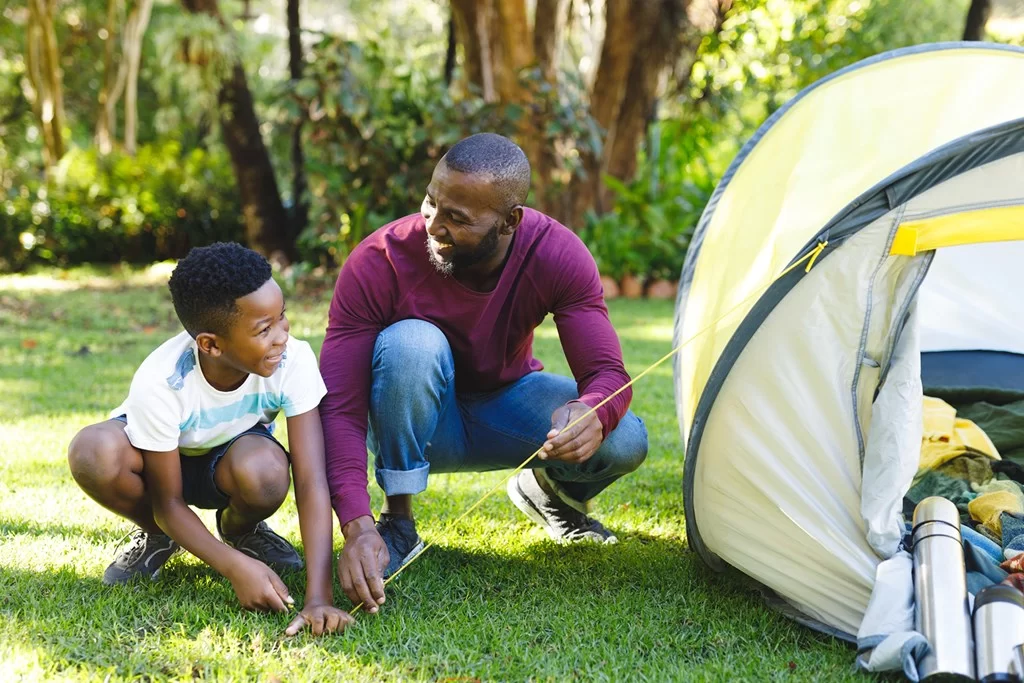Discover the top camping tips for beginners. Learn essential camping advice and outdoor preparation for your first adventure, and enjoy your camping trip to the fullest.

Top Camping Tips for Beginners: Essential Advice for Your First Outdoor Adventure
- Planning Your First Camping Trip
- Choosing the Right Campsite
- Essential Camping Gear for Beginners
- Camping Food Tips for Beginners
- Staying Safe While Camping
- Embracing the Camping Experience
1. Planning Your First Camping Trip
Camping is an exciting way to connect with nature, but for beginners, proper planning is essential. The first step is to decide on a location that suits your experience level. For newcomers, choosing a campsite that offers basic amenities like toilets, drinking water, and marked trails can make the experience more enjoyable and less stressful.
One great tip is to start small. A one- or two-night trip to a nearby state park is perfect for your first time. You don’t have to go far to enjoy the outdoors! I still remember my first camping experience at Pine Cliff Resort, where I learned that the key to a successful trip is preparation. With the help of friendly staff and clear guidance on what to bring, I had an unforgettable first adventure.
2. Choosing the Right Campsite
Choosing the right campsite is critical to having a fun and safe experience. Look for campsites that are close to amenities, especially if you’re a beginner. When you’re choosing your site, think about the terrain, weather, and the season. The last thing you want is to be caught off guard by unexpected weather conditions.
Here’s an example: On my second camping trip, I was excited to camp by a lake, but I didn’t check for potential flooding during the rainy season. By the time the first rainstorm came, the lake's water levels rose, and my tent was flooded! This taught me to always check the forecast and select campsites with proper drainage, especially near water sources.
3. Essential Camping Gear for Beginners
As a beginner, packing the right gear is key. You don’t need to buy every piece of equipment, but there are some essentials that will make your experience much more enjoyable:
- Tent: A quality tent is a must for protection from the elements. Make sure to choose a tent that fits your group size and is weather-appropriate.
- Sleeping Bag and Pad: A sleeping bag suited for the weather and a comfortable sleeping pad are essential for a good night's rest in the great outdoors.
- Cooking Gear: A portable stove, cookware, and utensils are necessary for preparing meals. Don't forget a cooler to keep your food fresh.
- Clothing: Pack layers to ensure you stay warm during cooler nights. Waterproof jackets and boots are also helpful for unexpected weather.
When I first went camping, I was tempted to skimp on gear, but after a chilly night without proper insulation, I learned that investing in quality equipment is well worth it. Check out recommended gear options at Pine Cliff Resort for expert advice on camping essentials.
4. Camping Food Tips for Beginners
One of the best parts of camping is enjoying delicious meals in the great outdoors. But preparing food at a campsite can be challenging for beginners. Here are some simple tips:
- Pre-packaged Meals: Pre-made freeze-dried meals are a convenient option, especially for beginners. These meals are lightweight and easy to prepare with just hot water.
- Grilled Classics: Bring along simple ingredients for classic camping meals like hot dogs, burgers, and skewered veggies. These are easy to cook over a campfire or portable stove.
- Snacks: Stock up on high-energy snacks like trail mix, granola bars, and fruit to keep your energy up during your hike.
On my first camping trip, I made the mistake of trying to cook a fancy meal, but the weather and equipment made it difficult. Since then, I’ve learned that simple meals can be just as satisfying. For tips on camping-friendly meals, consider visiting Pine Cliff Resort for recipe ideas and advice on outdoor cooking.
5. Staying Safe While Camping
Safety should always be a priority when camping, especially for beginners. Start by understanding basic outdoor survival skills, such as building a fire and staying oriented with a compass. Always let someone know your itinerary before heading out, especially if you're camping in remote areas.
Also, be aware of wildlife. I remember camping near a forested area and hearing coyotes at night. At first, it was a little unnerving, but I quickly learned how to secure food and trash to prevent attracting wildlife. Keeping a clean campsite is one of the simplest ways to avoid unwanted visitors!
6. Embracing the Camping Experience
Finally, one of the best tips I can give for beginners is to embrace the camping experience. Don't stress too much about everything being perfect. Camping is about connecting with nature, enjoying the fresh air, and making memories. Whether you’re stargazing by the fire or waking up to the sunrise over a mountain, the adventure is what you make of it!
On my last camping trip at Pine Cliff Resort, I learned that it’s okay to embrace the imperfect moments. I lost my flashlight, my tent got a little wet, but I had some of the best conversations around the campfire. It was an experience I’ll never forget.
RV Park
5449-5469 Underhill St, Buzzards Bay, MA 02542, USA
Visit Location PageDevils Meadow Campsite
Rhododendron, OR 97049, USA
Visit Location Page